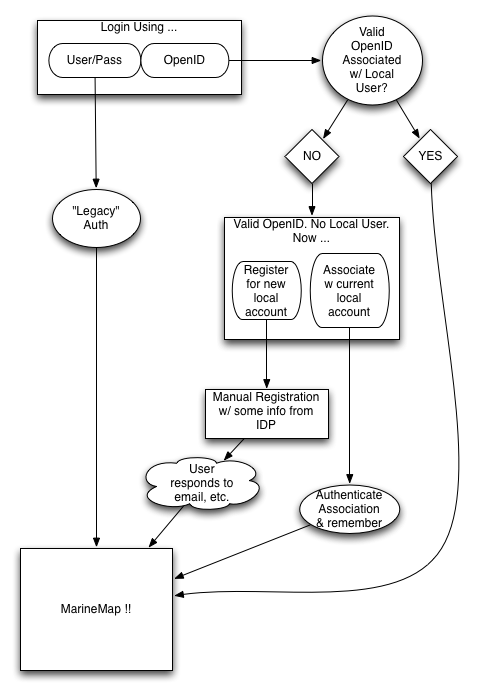madrona.openid - Authentication System¶
Overview¶
Madrona instances require local accounts for all users. By default, logging on requires nothing more than supplying the username and password for the local account.
To use a single logon for mutliple madrona instances, you can optionally turn on OpenID consumer support. This allows you to use a third-party openid provider to authenticate. Once your identity is verified by the OpenID Identity Provider, you can associate that openid with a local account.
When you have multiple madrona accounts, all associated with a single openid, you get the benefits of app-to-app communication (TBD).
Underlying Implementation¶
The madrona.openid app is a fork of the django-authopenid project. django-authopenid provided a good starting point for an openid consumer integrated with django auth, registration and legacy auth. Unfortunately it was no longer being maintained and required updates and customization - hence the fork.
Configuration¶
You can use the OPENID_ENABLED setting to turn on/off the OpenID Login. The default is False or local “legacy” authentication system only. Setting to True enables openid features on the signin and user profile screens.
